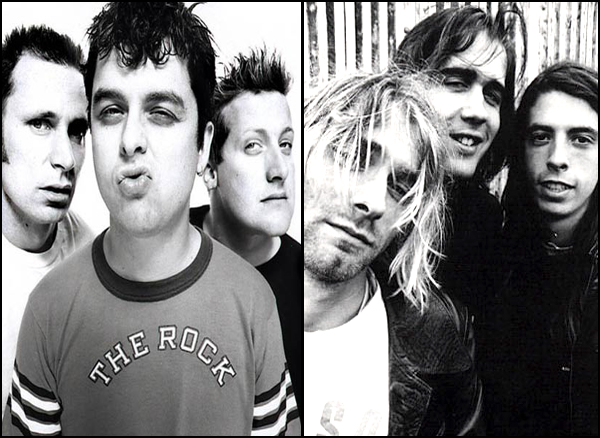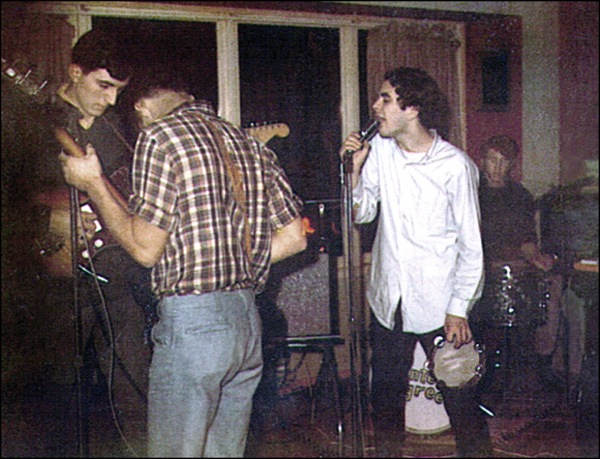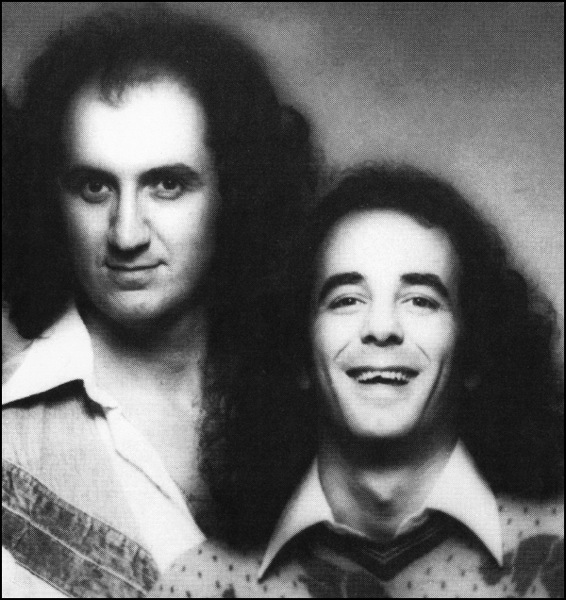The Politics of Songwriting - Part Five
The three members of Green Day split songwriting royalties evenly despite the fact that, from what I can tell, Billy Joe Armstrong writes the lyrics and melodies for their songs. Kurt Cobain, on the other hand, received sole songwriting credit for all but a couple of Nirvana's songs (a co-write and a b-side written by the band's drummer Dave Grohl).
Two entirely different ways of approaching songwriting royalties. And there's everything in between. There are no rules, and that, I think, is as it should be.
Green Day's all-for-one attitude has kept the band together through a long and impressive career. Billy Joe's decision to share writing credits may play a major part in this.
There are many Green Day covers out there. I've got a great version of 'Good Riddance (Time of Your Life)' recorded by Glen Campbell. Like the Green Day arrangement, it's mostly the singer, an acoustic guitar, and an orchestra. It's hard to imagine what role Trés Cool, and Mike Dirnt (the drummer and bassist) played in writing the song, but they receive equal shares of songwriting royalties from any cover versions. Best I can tell, Billy Joe is cool with this.
What if, though, one or both of Billy Joe's bandmates left the band in their early days - a situation that has befallen many young writers? They would continue to receive royalties, from songs they may not have contributed to, despite the fact that Billy Joe would now be performing with a new drummer and bass player in Green Day. Maybe they have a contract that deals with this. Maybe they don't care.
Kurt Cobain's band, Nirvana, had five drummers before Dave Grohl joined. Splitting his songwriting royalties with one of them might have induced that drummer to stay on (or made Cobain less-likely to fire him) and Nirvana could well have cemented an entirely different line-up - in the way that Green Day did. But that line-up would not, then, have included Dave Grohl - a significant contributor to Nirvana's aural appeal. Nirvana members Grohl and Krist Novoselic did not receive (with only two exceptions) songwriting royalties on Nirvana songs. Best I can tell, they were cool with this.
Since his days in Nirvana, Dave Grohl has become one of the world's most successful musicians and the "primary songwriter" for the Foo Fighters, just as Cobain was for Nirvana. Ironically, since I've referenced him in this ongoing rant about the politics of songwriting, Nirvana's bass player Krist Novoselic is currently active in ... politics, as an elected State Committeeman in Washington State.
UPDATE/CORRECTION:
Rolling Stone Magazine has run (in September 2012) an online version of a Kurt Cobain interview from their January 27 1994 issue. In it, Kurt Cobain breaks down Nirvana's songwriting shares. I was wrong about him receiving all the royalties. If my math is correct, it appears he took a total of 87.5% while the other two band members shared the remaining 12.5%, for a total of 6.25% each. Here's how he put it:
Haven't there been any issues where there was at least heated discussion? Yeah, the songwriting royalties. I get all the lyrics. The music, I get 75 percent, and they get the rest. I think that's fair. But at the time, I was on drugs when that came up. And so they thought that I might start asking for more things. They were afraid that I was going to go out of my mind and start putting them on salary, stuff like that. But even then we didn't yell at each other. And we split everything else evenly.






